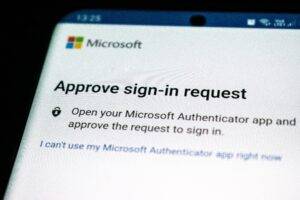The Recent SEC Twitter Hack Shows Why Multifactor Authentication is Essential

The U.S. Securities and Exchange Commission (SEC) suffered an embarrassing hack this week when their Twitter account was compromised.
The hacker posted a fake message claiming that the agency had approved spot bitcoin exchange-traded funds (ETFs), causing bitcoin prices to briefly surge. This incident highlights why multifactor authentication (MFA) is so important.
The SEC Has a History of Cybersecurity Lapses
This Twitter hack put a spotlight on the SEC’s problematic cybersecurity track record. Despite its role in regulating public companies and markets, the agency has repeatedly been called out for lax security protections.
An audit last year found the SEC wasn’t fully complying with federal cybersecurity standards, including MFA requirements for public-facing systems. A separate evaluation in 2021 identified weaknesses in the SEC’s network access controls that left it vulnerable to unauthorized access.
Failure to Use the Essential Security Precaution of Multifactor Authentication
The hack also came just after the SEC imposed new rules requiring companies to promptly disclose cyber incidents. Yet the regulator itself failed to activate the basic security precaution of MFA on its Twitter account.
This glaring oversight highlights why all organizations need to take cybersecurity seriously and enable MFA wherever possible. MFA adds an extra layer of protection by requiring users to provide two forms of identification when accessing accounts or networks. Requiring something you know (like a password) and something you have (like a security code) makes it exponentially harder for hackers to gain entry.
The SEC’s own chair, Gary Gensler, has stressed the importance of security measures like MFA. Yet his agency did not practice what it preached. The White House’s 2022 cybersecurity strategy also directs federal agencies to adopt MFA as a baseline precaution.
Why Multifactor Authentication is So Vital for Security
Although no system is completely hack-proof, MFA dramatically improves the odds. Along with strong passwords, network monitoring, access controls and data encryption, it’s one of the most vital steps organizations can take to guard against cyber intrusions.
The SEC’s Twitter hack was relatively harmless, but lax security could expose far more sensitive information in the future. This incident should serve as a wakeup call for all entities to examine their own defenses. Turning on MFA is a quick, easy fix that closes a major vulnerability exploited by hackers.
Conclusion
Robust cybersecurity is ultimately about vigilance and continually assessing risks. For the SEC and other organizations, enabling MFA across the board is long overdue. No one wants to be the next preventable headline. The SEC hack demonstrates clearly that even government agencies need to take basic security measures like multifactor authentication seriously. Let this be a lesson to us all.
Fizen Technology
Interested in learning more? Contact us today, and let’s reshape the future, together.